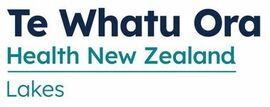Lakes > Public Hospital Services > Te Whatu Ora – Health New Zealand Lakes >
Special Care Baby Unit (SCBU) | Lakes | Te Whatu Ora
Public Service, Intensive Care, Maternity, Paediatrics
Description
Formerly Lakes DHB Special Care Baby Unit (SCBU)
The SCBU (Special Care Baby Unit) at Lakes is an 8-bed, level two neonatal unit which provides care for sick and/or preterm infants greater than 32 weeks gestation.
Our unit is dedicated to providing individualised, holistic, family/whānau centred developmental care that responds to the infant's physiological, psychological, spiritual and cultural needs.
The unit has three nurseries, one for isolation, one for intensive care and one for the infants who are stable and just require feeding and growing until they are ready for discharge home.
We also provide short term breathing assistance (called CPAP) support and short-term ventilation pending transfer to our tertiary support unit at Waikato Newborn Intensive Care Unit (NICU) in Hamilton.
We have four available Mothercraft rooms where mothers can stay close to their infant and continue to seek support and guidance from the SCBU staff while their infant is in SCBU care.
Where to find us: see the Rotorua Hospital map here.
Consultants
-

Dr Michelle Bawden
Paediatrician
-

Dr Stephen Bradley
Paediatrician - Woman, Child & Family Clinical Director
-

Dr Belinda Coulter
Paediatrician
-

Dr Sonja Crone
Paediatrician - Head of Department (HOD)
-

Dr Sarka Davidkova
Paediatrician
-

Dr Danny de Lore
Paediatrician
-

Dr Anne Jaquiery
Paediatrician
-

Dr Aimee Kettoola
Paediatrician
-

Dr Jaco Nel
Paediatrician
-

Dr Aaron Ooi
Paediatrician
Referral Expectations
Babies that are born early; are very small or have other acute problems at birth will be referred to the Paediatric Department who may admit your child to the Special Care Baby Unit (SCBU) if indicated (or may be involved in their care on the Perinatal Unit).
Fees and Charges Description
New Zealand citizens or those who have obtained permanent residence are entitled to publicly funded health care.
Non-residents may be required to pay for their health care.
Click here to read more about eligibility for funded care at Te Whatu Ora Lakes
Procedures/Treatments/Common Conditions
Continuous positive airway pressure, commonly called CPAP, is a special type of breathing circuit that is used to help your baby's breathing. CPAP is delivered through a set of nasal prongs or through a small mask that fits snugly over a baby’s nose. A baby may require CPAP if: they are born early (premature) they have an infection they are having difficulty breathing How long your baby requires CPAP will depend on their age, when they were born and their medical condition. CPAP will help your baby to breathe, by supporting their own breathing efforts. CPAP delivers constant air pressure into a baby's nose, which helps the air sacs in the lungs stay open. This helps a baby to breathe more regularly and prevents apnea (when they forget to breathe).
Continuous positive airway pressure, commonly called CPAP, is a special type of breathing circuit that is used to help your baby's breathing. CPAP is delivered through a set of nasal prongs or through a small mask that fits snugly over a baby’s nose. A baby may require CPAP if: they are born early (premature) they have an infection they are having difficulty breathing How long your baby requires CPAP will depend on their age, when they were born and their medical condition. CPAP will help your baby to breathe, by supporting their own breathing efforts. CPAP delivers constant air pressure into a baby's nose, which helps the air sacs in the lungs stay open. This helps a baby to breathe more regularly and prevents apnea (when they forget to breathe).
Continuous positive airway pressure, commonly called CPAP, is a special type of breathing circuit that is used to help your baby's breathing. CPAP is delivered through a set of nasal prongs or through a small mask that fits snugly over a baby’s nose.
A baby may require CPAP if:
- they are born early (premature)
- they have an infection
- they are having difficulty breathing
How long your baby requires CPAP will depend on their age, when they were born and their medical condition.
CPAP will help your baby to breathe, by supporting their own breathing efforts. CPAP delivers constant air pressure into a baby's nose, which helps the air sacs in the lungs stay open. This helps a baby to breathe more regularly and prevents apnea (when they forget to breathe).
Hypoglycaemia is when the level of sugar (glucose) in the blood is too low. Glucose is the main source of fuel for the brain and the body. In a newborn baby, low blood sugar can happen for many reasons. Babies most at risk are those who are: born premature (especially with low birth weights) born small or large for their gestational age born under significant stress born to mothers with diabetes or who have been treated with certain medicines. Hypoglycaemia can cause problems such as shakiness, blue tint to the skin, and breathing and feeding problems. Treatment will depend on your baby's gestational age and overall health. Treatment includes giving the baby a fast-acting source of glucose. This may be as simple as a glucose and water mixture or formula as an early feeding. Or your baby may need glucose given through an IV.
Hypoglycaemia is when the level of sugar (glucose) in the blood is too low. Glucose is the main source of fuel for the brain and the body. In a newborn baby, low blood sugar can happen for many reasons. Babies most at risk are those who are: born premature (especially with low birth weights) born small or large for their gestational age born under significant stress born to mothers with diabetes or who have been treated with certain medicines. Hypoglycaemia can cause problems such as shakiness, blue tint to the skin, and breathing and feeding problems. Treatment will depend on your baby's gestational age and overall health. Treatment includes giving the baby a fast-acting source of glucose. This may be as simple as a glucose and water mixture or formula as an early feeding. Or your baby may need glucose given through an IV.
Hypoglycaemia is when the level of sugar (glucose) in the blood is too low. Glucose is the main source of fuel for the brain and the body.
In a newborn baby, low blood sugar can happen for many reasons. Babies most at risk are those who are:
- born premature (especially with low birth weights)
- born small or large for their gestational age
- born under significant stress
- born to mothers with diabetes or who have been treated with certain medicines.
Hypoglycaemia can cause problems such as shakiness, blue tint to the skin, and breathing and feeding problems.
Treatment will depend on your baby's gestational age and overall health. Treatment includes giving the baby a fast-acting source of glucose. This may be as simple as a glucose and water mixture or formula as an early feeding. Or your baby may need glucose given through an IV.
Visiting Hours
Parents can visit their baby at any time of the day or night.
Hospital visiting hours for other visitors is between 10am and 8pm. Please note that we prefer all visitors to be accompanied by the baby's parent. Only two people per baby at a time due to space and infection control requirements.
In order to minimise the risk to neonates from infections/viruses, visitors with cold or flu symptoms, diarrhoea, cough, runny nose or rash will not be able to visit babies in SCBU.
Children under 14 years of age may not visit in the nursery but can come to the mothercraft rooms on site and visit the baby once they are rooming in with the parents.
Please be mindful that that this is an intensive care unit with some very sick babies and, at times, visiting may be restricted.
Travel Directions
Access to the unit is via the Ground Floor, Bridgman Building.
This is a secure unit – on arrival please ring the doorbell and a staff member will let you in.
Please note, we are a small and busy team so there may be a delay but we will get to you as soon as we can.
Pharmacy
Click here to find your nearest community pharmacy.
Other
Click here for more information about your trip to Rotorua Hospital, including:
- Hospital visiting hours
- Travel directions
- Public transport
- Parking
- Refreshments
- Security
- Transport and accommodation assistance
Website
Contact Details
Rotorua Hospital
Lakes
-
Phone
(07) 348 1199
Website
Corner Arawa Street and Pukeroa Road
Rotorua
New Zealand
Street Address
Corner Arawa Street and Pukeroa Road
Rotorua
New Zealand
Postal Address
Rotorua Hospital
Private Bag 3023
Rotorua Mail Centre
Rotorua 3046
Was this page helpful?
This page was last updated at 11:48AM on March 26, 2024. This information is reviewed and edited by Special Care Baby Unit (SCBU) | Lakes | Te Whatu Ora.

